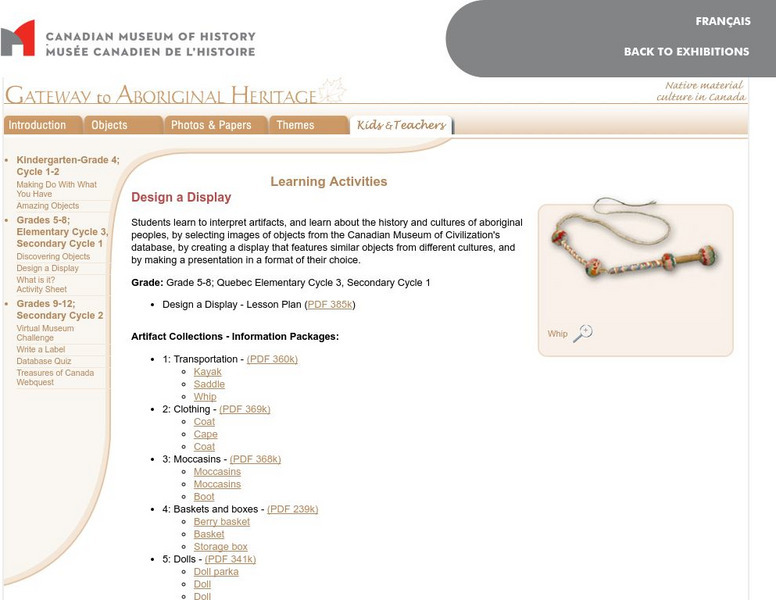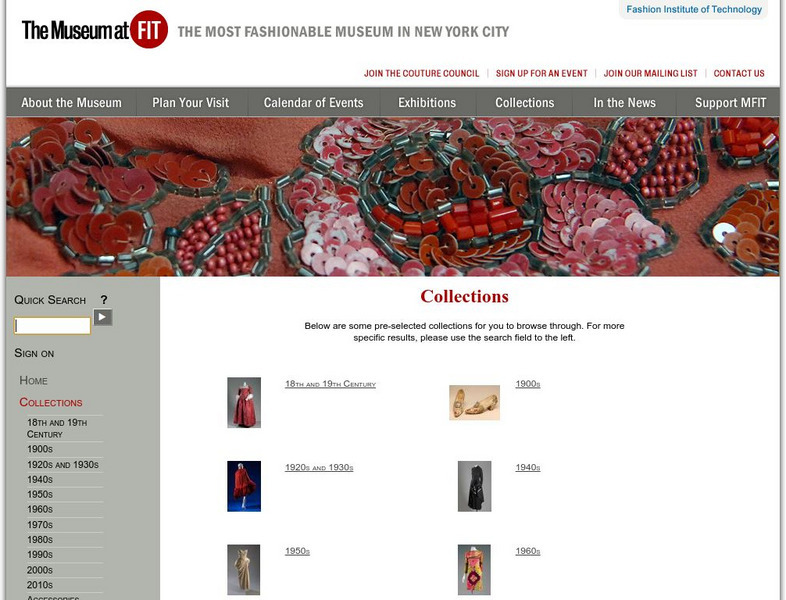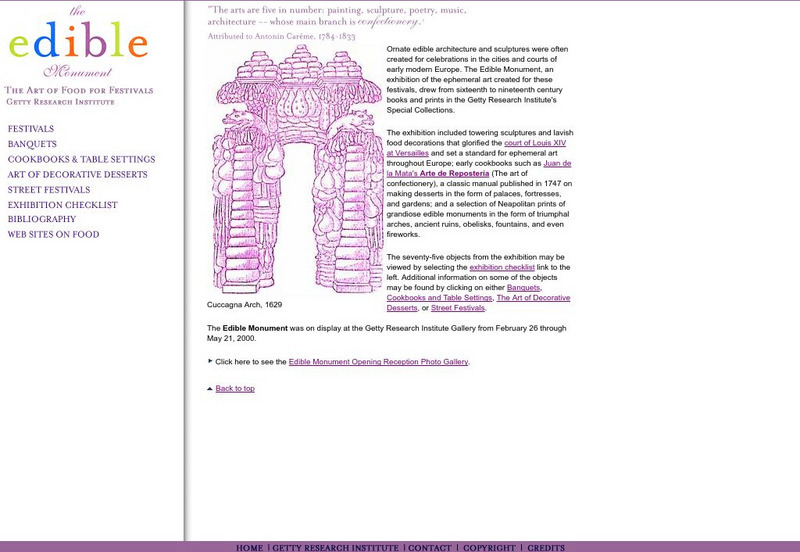ProCon
School Uniforms
Americans spend around one billion dollars each year on school uniforms, but are they necessary? As pupils research the debate topic, they form their own opinions. They review the history of school uniforms and discover the top pro and...
American Museum of Natural History
Bio-Benefits
Kick-start a discussion of the importance of biodiversity with a colorful resource that touts the benefits of maintaining healthy ecosystems. The images stress the interdependence of all the elements of an ecosystem.
Smithsonian Institution
National Museum of American History: Chinese American Clothes and Heritage
With this collection, visitors can explore the fashions and culture of Chinese Americans in the 19th and 20th centuries.
Smithsonian Institution
National Museum of African Art: Wrapped in Pride: Ghanaian Kente
Learn about African kente cloth, including how it is made, when to wear it, and how to wear it. Accompanying interactive lets you can design your own kente.
Other
Cmh: Gateway to Aboriginal Heritage: Design a Display
Students compare and contrast similar objects from different cultures using images from the Museum of Civilization. Interpreting and classifying the items will challenge students' higher order thinking skills.
Other
Recycle Runway
With a stress on saving and protecting the environment, these clothes are handmade from materials such as aluminum cans and glass.
Other
Southern Illinois University, Edwardsville: History of Costume
Digital scans of the illustrations from a nineteenth-century publication about historic costumes constitutes a pictorial survey of changing modes of dress from ancient times to the mid-1800s. Five hundred designs in all.
Smithsonian Institution
National Portrait Gallery: Black List Project: Sean Combs
With this resource, students can discover the story of rapper, record producer, clothing designer, and political activist, Sean "Puff Daddy" Combs, while viewing a photo and reading a biography.
Other
Fashion Institute of Technology: Museum: Collections (18Th Century to Present)
This in-depth collection offers images and background information about fashions and accessories from the 1700's to the present day.
Metropolitan Museum of Art
Metropolitan Museum of Art: Eighteenth Century European Dress
Explore fashion from the 1700's with the slideshow. Includes a discussion of popular styles, textiles and silhouettes.
Smithsonian Institution
The Fabric of Moroccan Life Urban Textiles and Costumes
For hundreds of years, Moroccan women have composed fine embroideries and rugs using intricate designs that have been passed down through generations. View these exquisite textiles with large detailed images.
Smithsonian Institution
Smithsonian Libraries:industrial Drawings at the Smithsonian: Doodles & Drafts
Drawing is a key element in an inventor's skill set. When it comes to the working out of new ideas, inventors turn to pencil and paper. Mixing art and science, this exhibition site showcases a collection of industrial drawings that...
Other
David Claudon: Dressing for Shakespeare
Learn the difference between farthingales and jerkins, trunk hose and canions by clicking on the Elizabethan Period costumes that Shakespeare's players and audience wore.
Other
Mayan Culture: Maya Weavers
Explore the world of Mayan weaving with this colorful site! Provides photos of this ancient art, as well as links to more information on symbols, weaving techniques, materials, and more.
Other
International Quilt Museum
The University of Nebraska - Lincoln has created a graduate program in Textile History with an emphasis on quilt studies to nurture the appreciation of quilts as an art and for their cultural significance in history. Their International...
J. Paul Getty Trust
J. Paul Getty Museum: The Ediable Monument: Art of Food for Festivals
Ornate edible architecture and sculptures were often created for celebrations in the cities and courts of early modern Europe. The Edible Monument is an exhibition of the ephemeral art created for these festivals.













